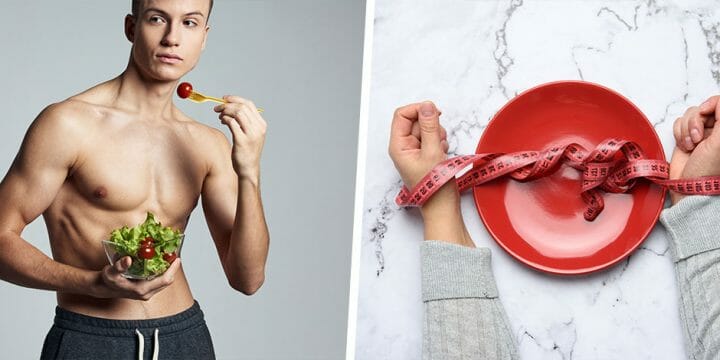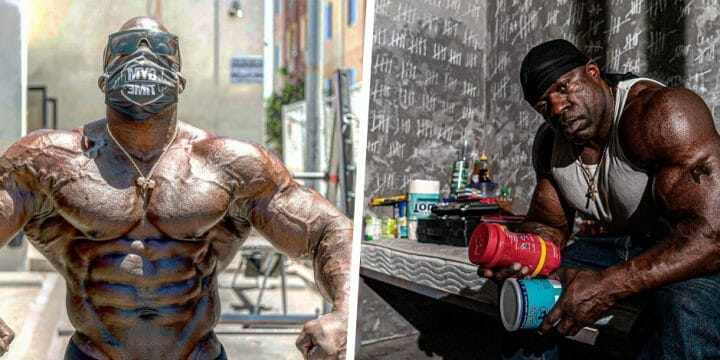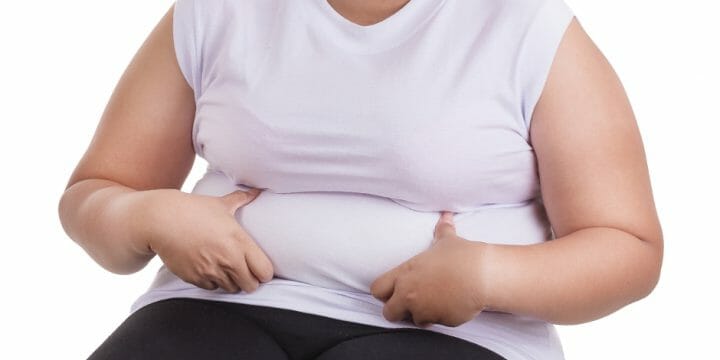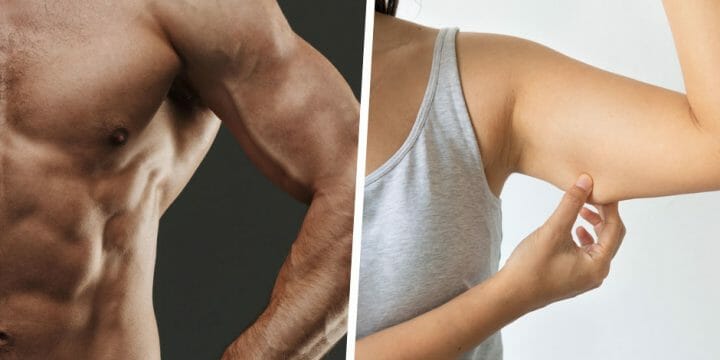Is it possible to get big off just tofu and vegetables?
When it comes to bodybuilding, protein is known to be a staple part of any routine.
But the bigger question people want to know is whether or not it is mandatory for the growth of muscles.
That’s why we’ve spent hours researching what experts and scientists have to say about whether or not you can build muscle without protein. If you’re wondering whether protein is essential for massive gains, read on.
Quick Summary
- You cannot build muscles without protein since it contains amino acids, responsible for building and maintaining body tissues.
- To properly build muscles, consistently eat enough proteins, and regularly engage in workouts.
- According to studies by the University of Minnesota Duluth, during the digestion process, long protein strains are broken into singular amino acids, which are then absorbed in the intestines and shipped to ribosomes.
- I've found that a well-rounded approach to nutrition and training can lead to impressive muscle gains, even when protein isn't the main focus.
Do We Need Protein for Muscle Growth?
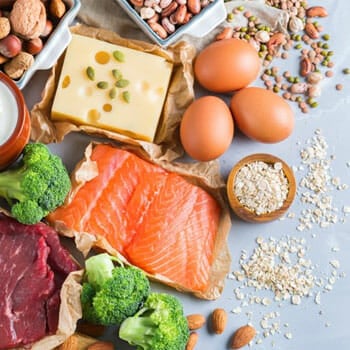
Yes, we need protein for muscle growth as it contains amino acids that are critical in the muscle-building process.
The amino acids are essential building blocks that are responsible for the building and maintenance of bodily tissue.
They are also crucial for the absorption and utilization of micronutrients like vitamins and minerals which also play a significant role in muscle function and recovery, complementing the muscle-building process initiated by proteins.
Your body normally prioritizes proteins for the maintenance of important bodily functions.
In order to create a protein surplus, you need to increase the amount of calories you eat, providing you with an excess to be used for growth.
How Does Protein Intake Work?
When you consume any type of food, and the digestion process starts, your pancreas makes pancreatic enzymes.
These enzymes, such as protease and trypsin, break down fats, sugars, and proteins. According to studies by the University of Minnesota Duluth, during this process, long protein strains are broken into singular amino acids, which are then absorbed in the intestines and shipped to ribosomes [1].
Additionally, adequate hydration plays a crucial role in this process, something I've seen time and again in my coaching career. Proper hydration not only facilitates the efficient transport of nutrients, including amino acids, to the muscles but also significantly enhances muscle recovery and growth
Finally, they are used to construct new proteins.
But Is Protein Powder Necessary To Build Muscle?
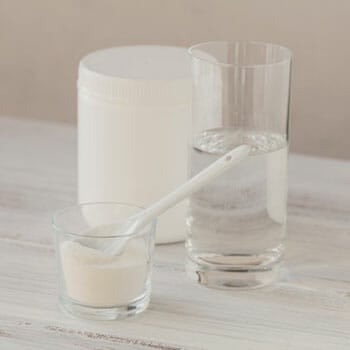
Taking any type of protein powder is not an absolute must for building muscle.
Some lean types of meat like chicken breast and beef and natural food such as nuts, seeds, and tofu also contain protein.
If you’d prefer to take protein in a natural form, adding these foods to your diet will work just as well.
But if you want to increase the amount of proteins in some other way, a shake or powder formula will do the trick.
Additionally, whey protein is considered the best of the protein powders for building muscles.
What Is the Best Way To Build Muscle Mass?

To build muscle mass, you’ll want to take a comprehensive approach.
In my years of training and coaching, I've found that building muscle mass is about more than just lifting weights. It's about a holistic approach – getting enough protein, eating consistently, and choosing the right foods.
I've guided many clients through this process, helping them transform their bodies and achieve their fitness goals. Here are some of the things that have worked as a whole:
1. Get Enough Protein
Without proteins, you won’t have enough nutrients to grow. Ensuring you have enough protein allows your body to utilize it towards muscle building and get swole.
If you’re struggling to add more proteins due to your appetite, opt for protein shakes or a protein supplement that’s easier on your digestion.
2. Eat Consistently

Not getting enough calories is one of the biggest factors preventing healthy weight gain and the growth of muscles. The more you eat, the more calories you have to work with.
Eating on a consistent basis provides your body with a calorie surplus to help you bulk up fast. Aim to eat a meal every three to four hours. By splitting up your calorie intake, it’ll allow you to digest food faster.
3. Switch To Natural Whole Foods
Whatever gets put into your system needs a place to be stored. Junk food and processed products contain tons of sugar that provide nothing that your body needs for growth.
Alongside carbs, these sugars get stored in your fat cells and contribute to your total weight.
Incorporating natural whole foods into your meals is something I always emphasize with my clients. It's not just about macronutrients; the micronutrients in these foods are vital for overall health, muscle function, and recovery, making them a vital component of a muscle-building diet.
I've seen remarkable improvements in clients who switched from processed foods to a whole-foods-based diet. These foods are great for your health and provide plenty of nutrient sources to allow your body to grow.
4. Opt For Healthy Fats
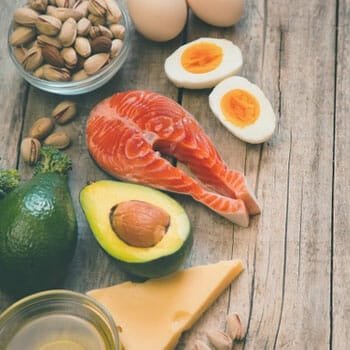
From my experience, the role of fat in muscle building is often underestimated. Healthy fats are a key source of energy for intense workouts. I always advise my clients to include sources like olive oil, avocados, and omega-3s found in eggs.
You can also get healthy fat from nuts and fatty fish, which also helps with the intake of proteins. In general, your fat intake should be roughly 20-35% of your total calories.
5. Make A Commitment To Exercise Regularly
If you’re looking to bulk up, you’ll need to do more than make the gym a New Year’s Resolution.
Commitment to a healthy diet and exercise is key for muscle gain. As quoted by researchers:
“Persistence in [weight] training and diet is essential [for muscle gains]. 2019 research by the International Journal of Environmental Research and Public Health has shown that hypertrophy that occurs at initial stages of RT (~4 sessions) is mostly attributable to muscle damage-induced cell swelling, with the majority of strength gains resulting from neural adaptations (8−12 sessions). Within the latter phase of RT (6−10 weeks), growth begins to become the dominant factor. [2]”
- Michal Krzysztofik, PhD in Sports Theory
Based on scientific tests, this means that results won’t be as noticeable for the first few weeks of exercise compared to after 6-10 weeks.
Additionally, you’ll want to include intense workouts such as weight training, strength training, and resistance training in your routine.
This promotes muscle protein synthesis, a process where protein is produced to repair muscle damage caused by intense exercise. As a result, your muscles will become stronger and grow larger as well.
Are There Any Side Effects of Taking Too Much Protein?

Taking too much protein can come with many side effects such as constipation, diarrhea, bad breath, excessive weight loss, indigestion, dehydration, and some diseases. As your protein intake increases, other nutrients and fluids are used to break it down.
This means an excessively high-protein meal plan will create an imbalance in your bodily system by forcing it to use more resources than necessary. In most cases, any extra proteins consumed will simply be flushed out when you go to the toilet.
Over long periods of time, however, it can lead to the many side effects listed above. That’s why it’s important not to go over the board with proteins for too long.
FAQs
Will I Lose Muscle if I Stop Taking Protein?
Your muscles will shrink over time if you completely stop taking protein.
Your body needs enough grams of protein per pound of body fat to ensure proper growth.
If you work out but do not get the necessary amount of protein, it can actually lead to muscle tissue loss.
How Much Protein Should I Consume Daily?
People should consume about 0.36 grams of protein per day for each pound of their body weight.
This totals about 56 grams for men and 46 grams for women (71 grams if they are pregnant or breastfeeding).
References:
- https://cehsp.d.umn.edu/sites/cehsp.d.umn.edu/files/2the_effects_of_whey_supplementation_and_natural_diet_on_protein_synthesis_and_muscle_hypertrophy.pdf
- https://www.mdpi.com/1660-4601/16/24/4897
About The Author
You May Also Like
